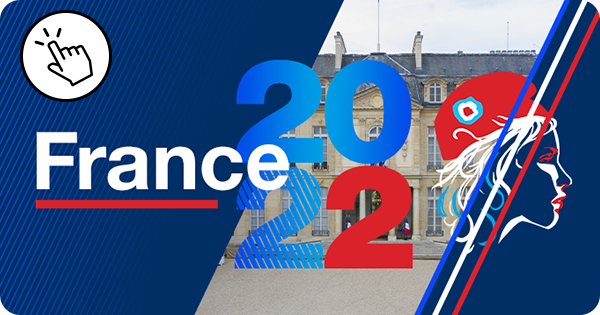French President Emmanuel Macron has come under fire for his government's liberal use of public money on private consultancy firms, including US-based giant McKinsey, with political rivals sensing an opportunity to narrow his considerable lead just 10 days ahead of the April 10 first round of presidential elections.
Macron has been forced to defend his government’s use of private consultants to help manage the Covid-19 pandemic after a Senate inquiry committee revealed that state spending on consulting firms had skyrocketed to more than €1 billion under his watch.
The use of private consultants has emerged as a surprise issue in the campaign as Macron’s challengers accuse his administration of lavishly spending taxpayer money on international firms that pay little or no taxes in the country.
Although government use of private consultants is common elsewhere, the practice is viewed with suspicion in France, where an elite civil service is expected to manage public affairs.
While Macron is still the overwhelming favourite to win a new term, the critiques come as polls suggest the vote may be tighter than expected.

“You get the impression that there's something murky, but that's not true,” Macron said at the weekend, challenging anyone with evidence of wrongdoing to report it to authorities.
He argued that public procurement policies had been strictly followed and additional help had been required during the Covid-19 pandemic, when ministries and civil servants were stretched thin.
Attention has focused in particular on McKinsey, whose eye-watering fees and tax policies have seen it join other US corporate bogeymen in France – from the BlackRock investment group to Goldman Sachs to genetically modified seed-maker Monsanto.
Some of Macron's rivals are even hinting at possible criminality while others focus on what they see as irresponsible spending and overly cosy relations between the government and companies known for high prices and cut-throat business advice.
“With me, consulting groups will be gone,” hard-left candidate Jean-Luc Mélenchon promised on Monday, while far-right leader Marine Le Pen's party has denounced a “state scandal”.
>> Who are the 11 candidates challenging Emmanuel Macron?
Several candidates blasted the government for giving private consultants precedence over France’s highly trained civil servants, noting that their reach extended well beyond management of the Covid-19 pandemic.
McKinsey “received half a million euros to reflect on teachers’ jobs", said Nathalie Arthaud, the candidate from the hard-left Lutte Ouvrière (Workers’ Struggle) party, herself a teacher.
“I reflect on my job every day when I face my students (...) but I don’t ask for half a million; I ask for a decent pay rise, like many workers.”
‘Nothing to hide’
The row over McKinsey emerged in the wake of a Senate investigation which concluded this month that public spending on consultants had more than doubled from 2018-2021, reaching more than €1 billion ($1.1 billion) last year, a record.
The investigation, which condemned the “sprawling phenomenon”, also slammed McKinsey for failing to pay corporation tax for the last 10 years despite declaring sales of 329 million euros in France – which McKinsey denies.
It took McKinsey several days to respond, stating that its French arm had paid 422 million euros in taxes and social charges from 2011 to 2020, without specifying whether that included corporate taxes.
Macron's government sent two ministers to again play defence on Wednesday, with public accounts chief Olivier Dussopt and civil service chief Amélie de Montchalin telling a news conference that there was “nothing to hide” and lashing out at “manipulations”.
"We can't tolerate that this report (from the Senate) has been twisted for the past few days," de Montchalin said, vowing to "reduce the use of external consulting services by at least 15 percent".
Other Macron allies point out that France spent far less than fellow European countries, particularly Britain.
The question for Macron is how much the issue will cut through to voters and affect his chances as the clear favourite for the two-stage election on April 10 and 24.
The former investment banker, labelled a "president of the rich" by left-wingers throughout his time in office, has so far largely steered clear of the election campaign, focusing instead on his diplomatic efforts to end Russia's assault against Ukraine.
Polls currently suggest Macron would easily win the first round if the vote were held today ahead of anti-immigration far-right leader Marine Le Pen, but she appears to be gaining momentum and is closing the gap.
>> Closing in on Macron: Could Le Pen’s blandest campaign be her most successful yet?
One latest survey set off alarm bells in Macron's camp by showing her up three points in a week at 47 percent versus 53 percent for the president in a hypothetical run-off.
“It's a complicated issue that will sway those who were already convinced that Macron is a 'president of the rich', but it's not a widespread issue,” political analyst Philippe Moreau Chevrolet told AFP when asked about the consultancy revelations.
“It counts much less than questions around household income and spiralling inflation and even fears about food supplies,” added Moreau Chevrolet, the founder of MCBG Conseil, a PR agency specialised in political communication.
(FRANCE 24 with AFP, REUTERS)







